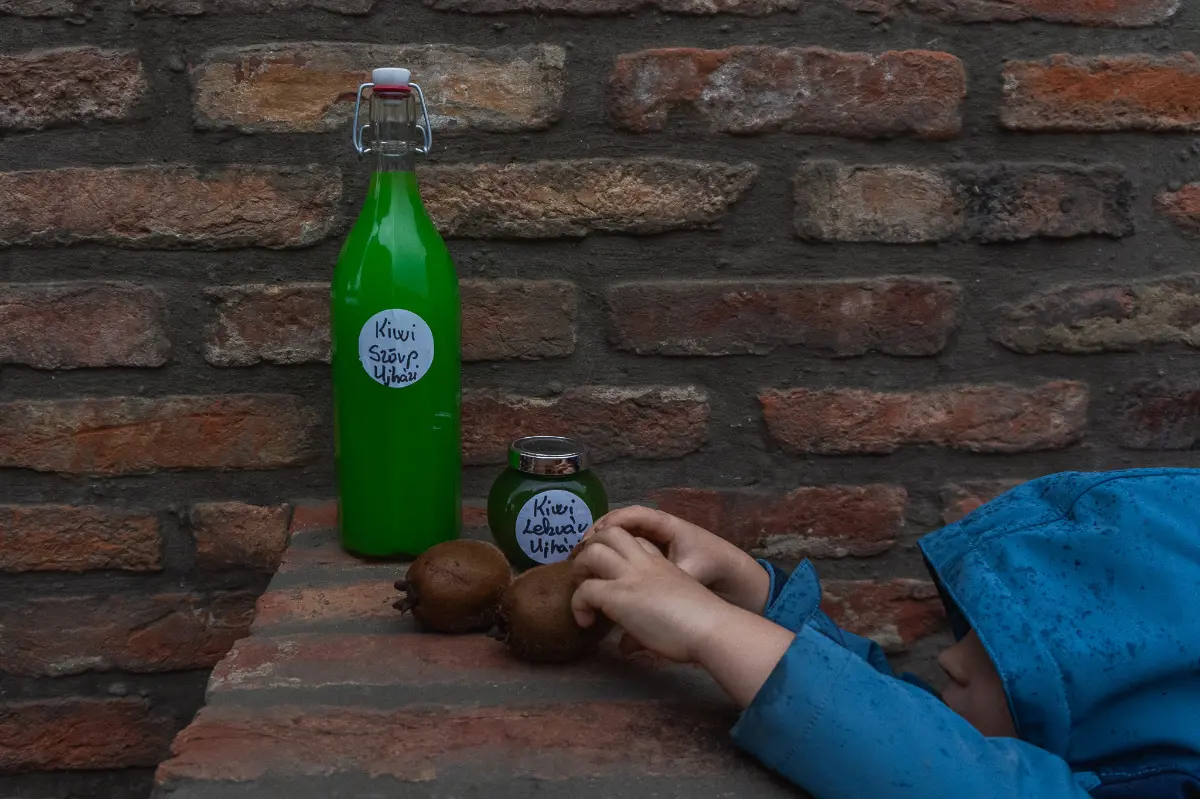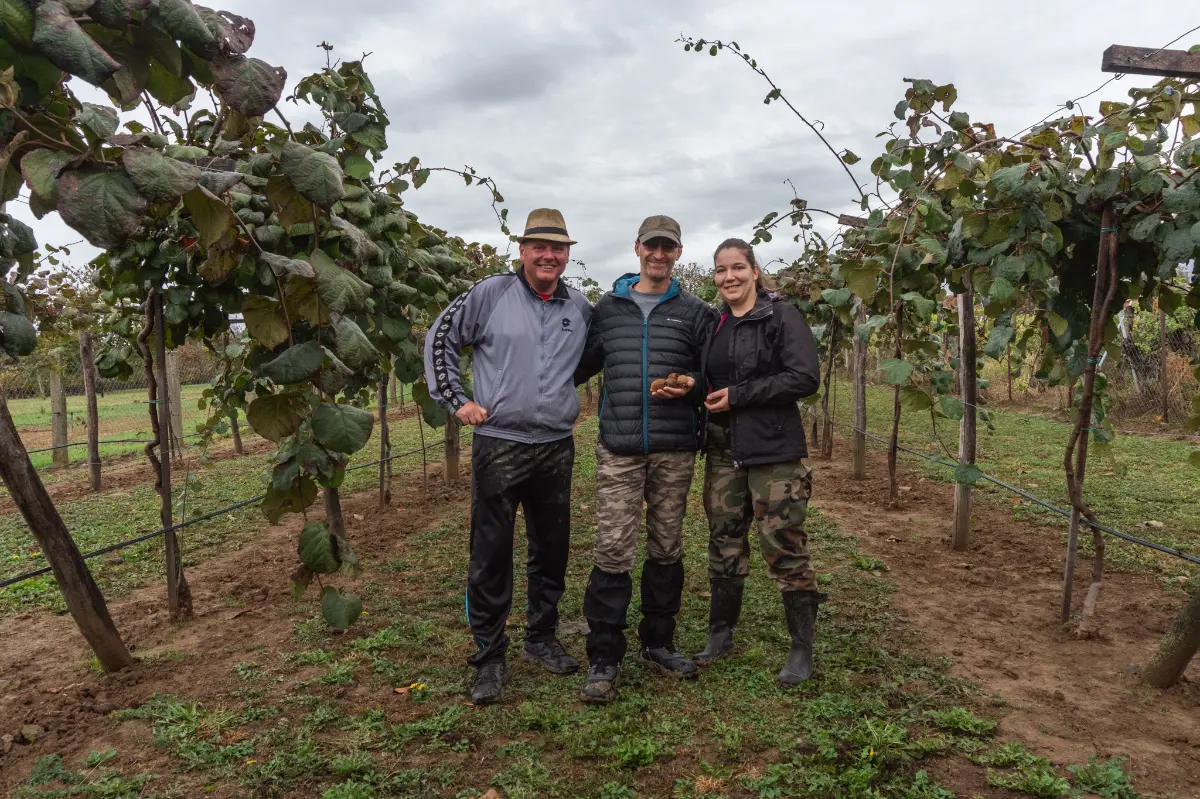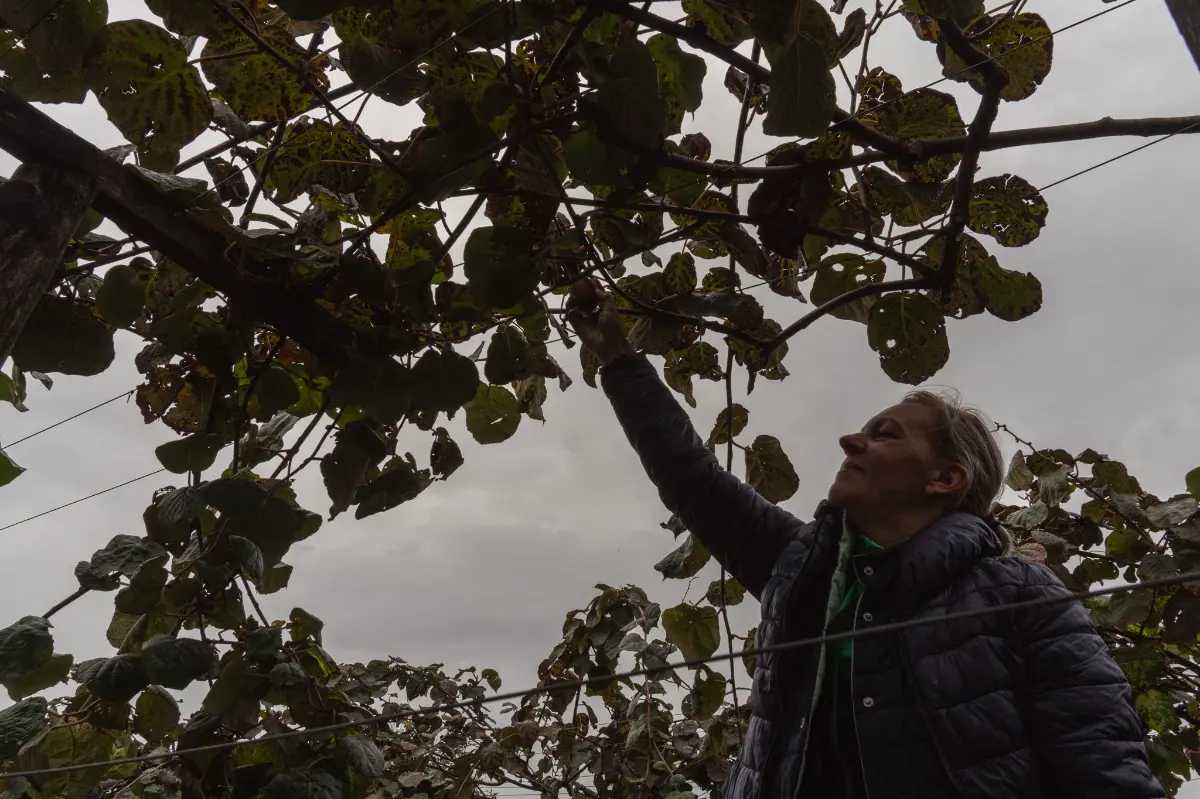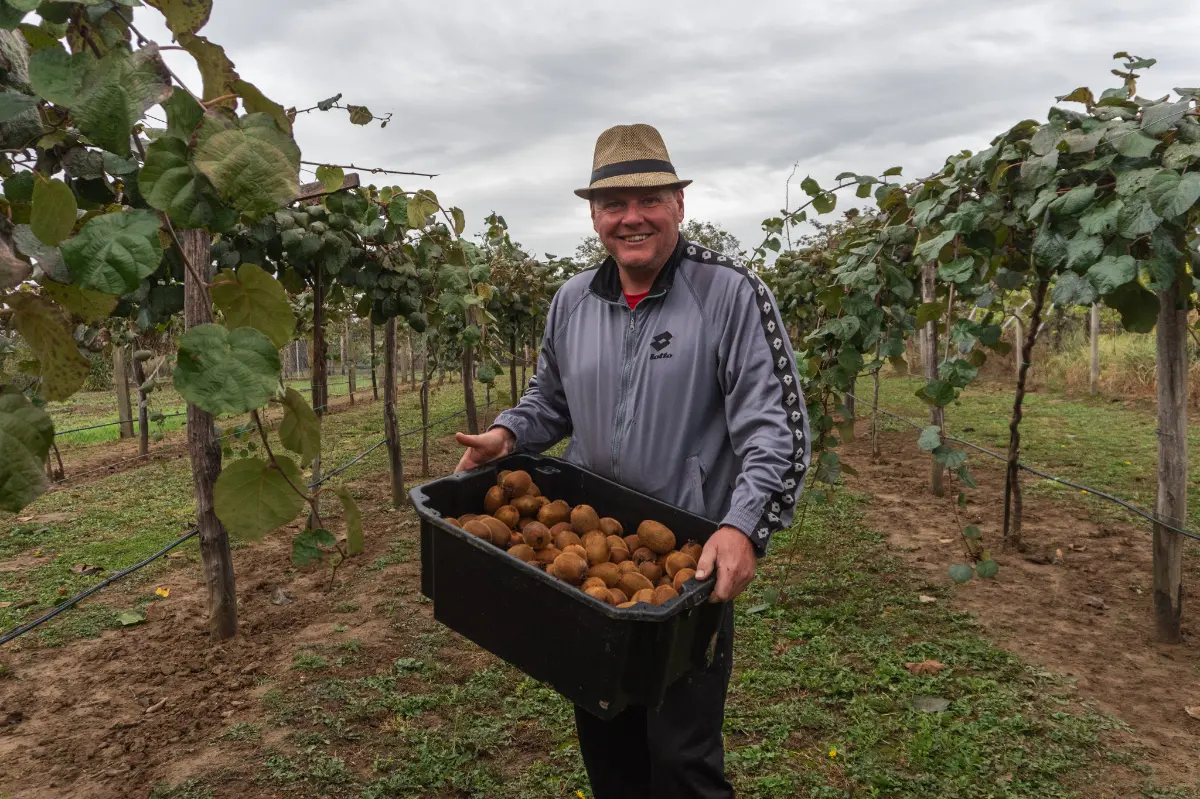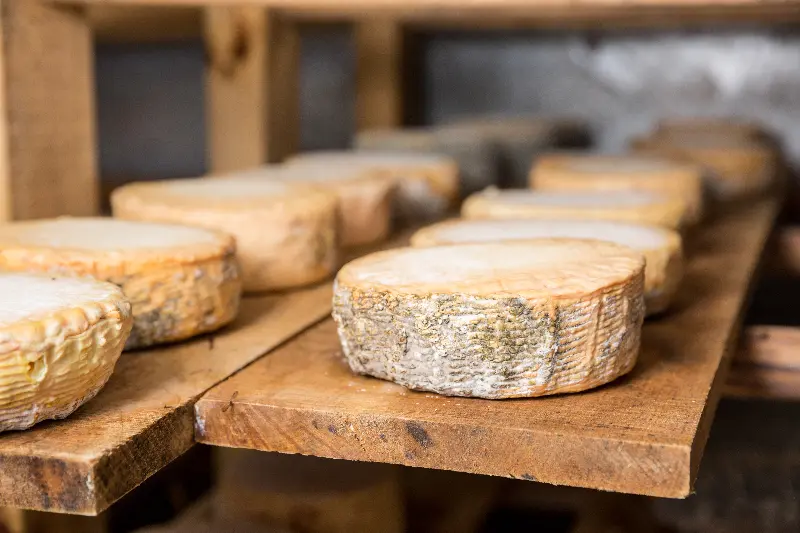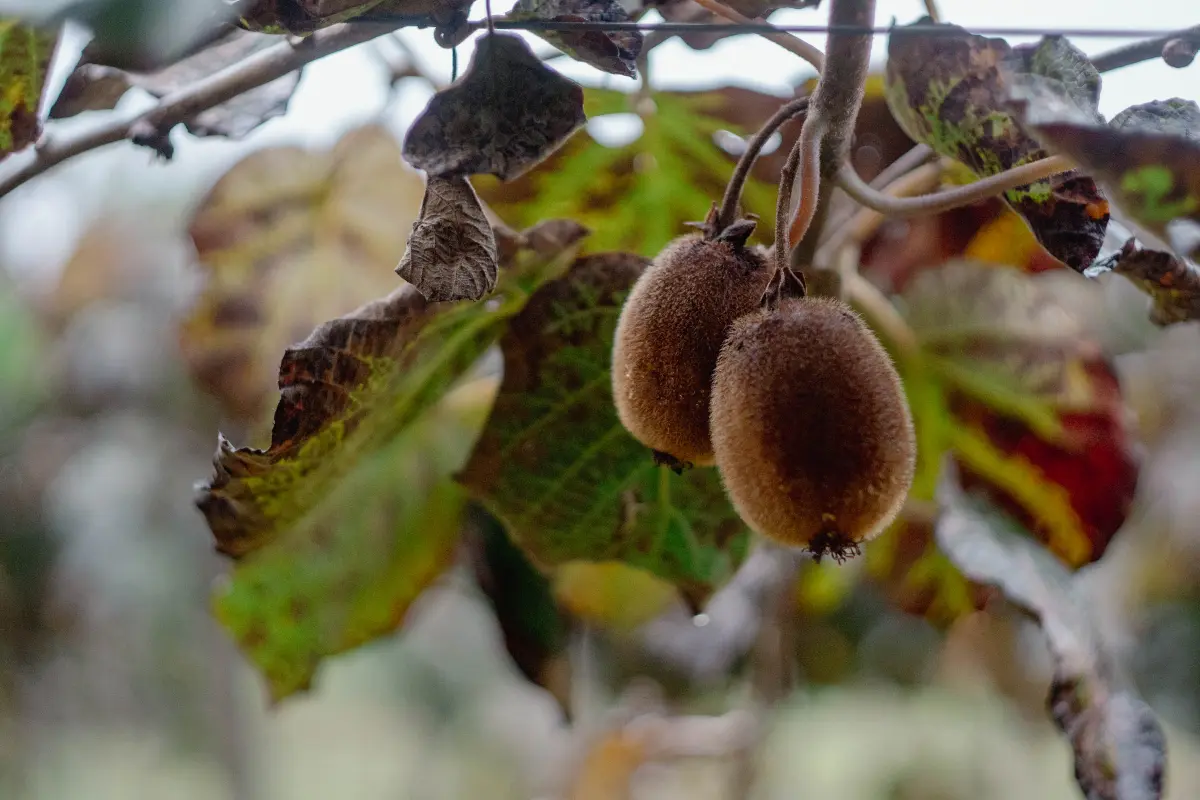
Helyszín címkék:
It’s healthy, fabulously delicious, and ours: we visited a Hungarian kiwi grower!
Szabó Sára
On the eastern outskirts of Szigetvár, on the vineyard hill, lies a small village called Zsibót. Here, among the romantic hills, is Tamás Ujházi’s 1.2-hectare plot, where he grows some of the world’s most popular varieties of green kiwi – Hayward and Tomuri. It may come as a surprise, but it’s not uncommon nowadays for someone to start growing kiwis, as this plant feels extremely well in the Hungarian climate.
It is a misconception that kiwi is a fruit of the South, because it comes from East Asia, from areas with a climate very similar to our own.
In other words, itis not growing here because of climate change (like figs or truffles), but thanks to a few Hungarian farmers with creative imaginations who dared to innovate. One such is Tamás, who has been working continuously since 2017, developing his vineyard estate. In 2022, he recorded a record harvest of 1.5 tonnes of kiwifruit.
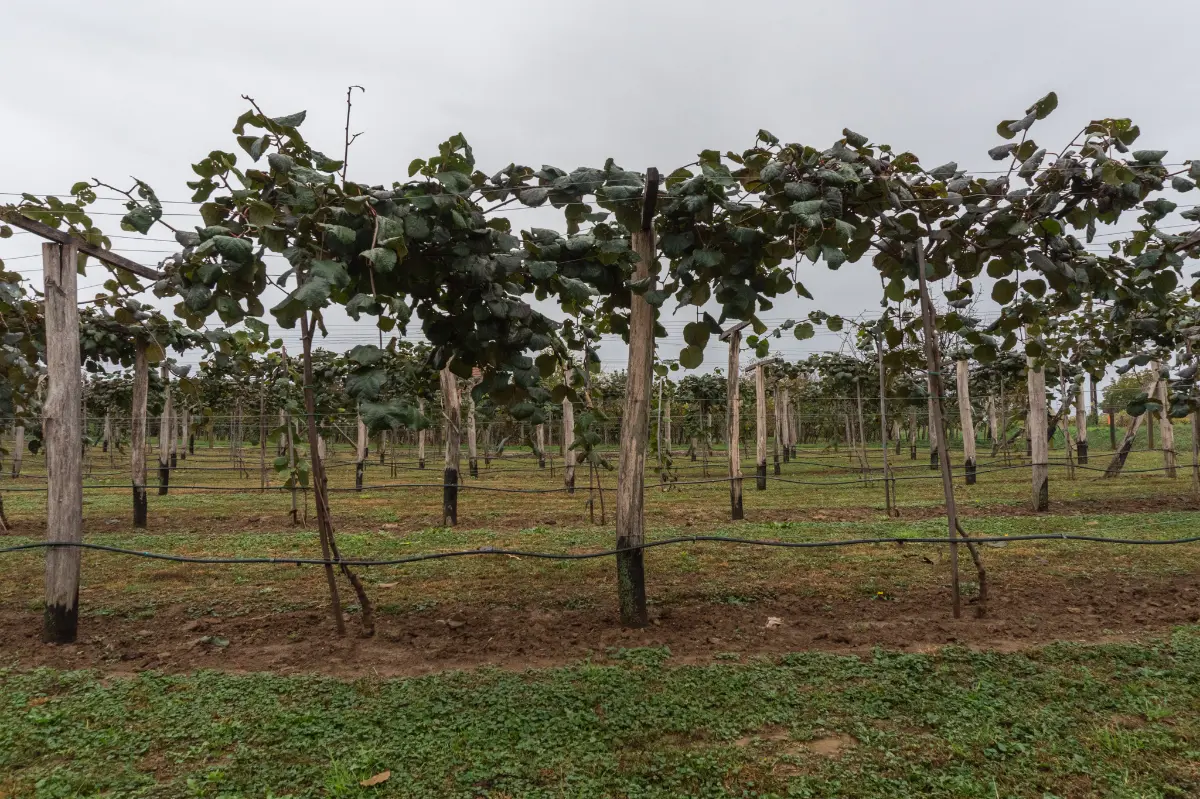
During my visit in Szigetvár, I saw green kiwis
We arrived there at the end of October, the day of the annual harvest. In spite of the drizzling rain, there is a lot of hustle and bustle, the stew is being prepared, and the atmosphere is cheerful. Right away we get a kiwi in our hands to touch the special, hairy fruit, which is Hungarian to the core. It is still firm, but when it ripens, it will be soft, tasty and sweet. Meanwhile, the farmer from Szigetvár talks about the needs of the plant.
“It is important to have plenty of rainfall, so in drier years, you need to irrigate and protect against frost damage during sustained temperatures below -2 °C. If you pay attention to these things, you can’t go wrong: kiwi has an ideal climate. Another advantage is that we can easily grow without chemicals, as there is no known disease of kiwifruit in our country,” says the farmer, who himself cultivates his land without spraying, using natural methods, mostly by hand. Even we are getting into the kiwi business, as the “fruit of labour” is not only delicious but also extremely healthy.
A real vitamin bomb even on the roughest days
During the dune walk, we learn more and more about the benefits of the plant. “Few people know that kiwifruit is ‘winter-proof’, which means that with proper storage, the fruit harvested at the end of October can be consumed until the end of March,” says Tamás, explaining that it is best stored in a room at 15 °C, and if you want to eat it, you should put it in a closed bag between apples. This way, in just 1-2 days, you get soft, sweet, juicy fruit that’s a real treasure on a cold, rainy day. He also adds that
kiwis are a particularly healthy treat, as they contain twice as much vitamin C as lemons.
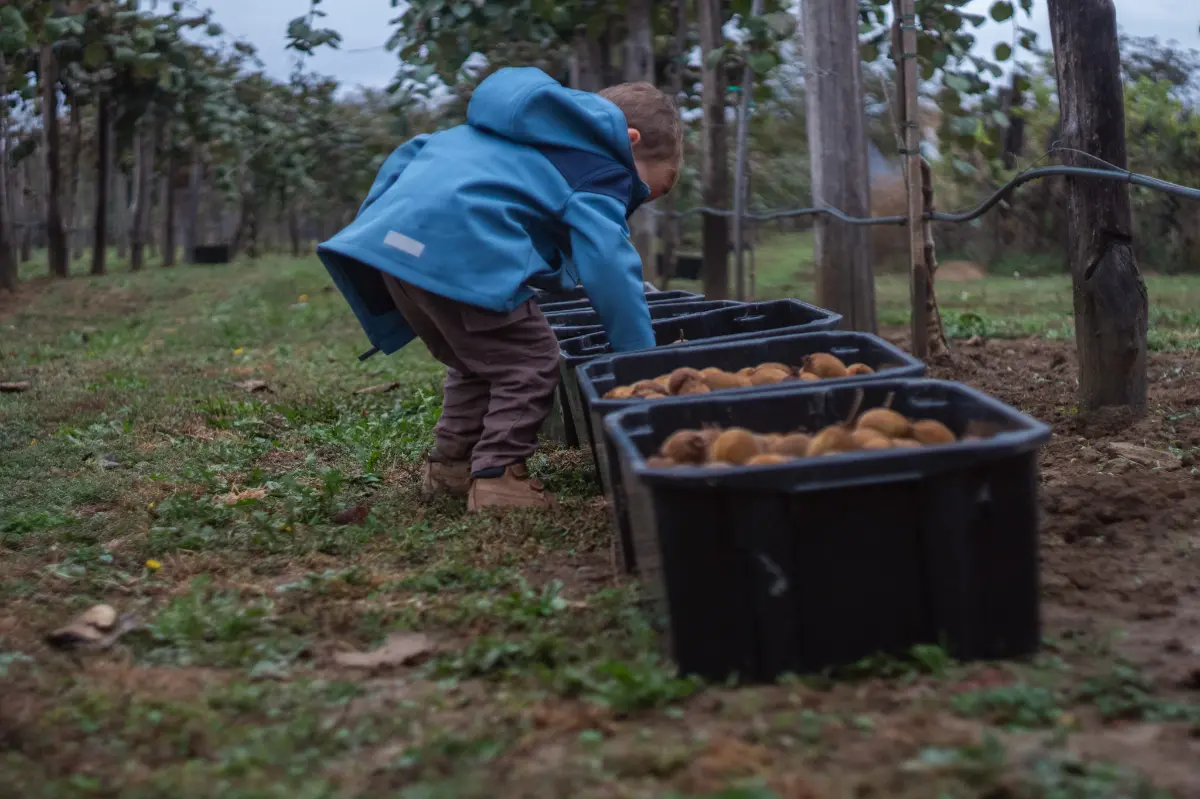
In addition, the Hayward variety is of much bigger size than the lemon, at least the one that grows in Zsibót. Tamás Ujházi’s kiwis are 120-125 grams, which are considered to be particularly large and of high quality – officially, kiwis over 80 grams are considered first class.
Consumed raw, cooked for jam or distillate
Kiwi is also a great ingredient when processing the flesh of the fruit. “Few people know that it is possible to make an excellent spirit from kiwi,” boasts the farmer, who, as an award-winning master distiller, is working to win the hearts of Hungarian brandy lovers with his own product in the coming years. But he doesn’t just make spirits from the delicacies grown on his land, he also has his own recipes for syrup and jam. No matter how it is marketed, in whatever form, he says, buyers are clamouring for it. “I didn’t think sales would be the easiest thing to do: there is a lot of interest in kiwis” – says the farmer, who currently supplies individuals and small shops – the fruit itself at the end of October and seedlings a week or two after that.
But the best thing about kiwi is that you can even grow it in your own garden. In ideal conditions, it will be productive in 2 years and its large, thick leaves make it one of the best choices for shade-giving climber plants.
